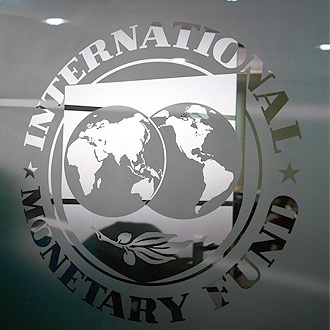
A team from the International Monetary Fund (IMF) will be in the country this week for a review of its supervised economic reform programme on the country as Zimbabwe pushes for a successor plan.
BY NDAMU SANDU
In June last year, the IMF agreed to a Staff Monitored Programme (SMP) on Zimbabwe after Harare had pledged to undertake a raft of reforms as it builds bridges with the multilateral financial institution.
The SMP — an informal agreement between country authorities and the Fund staff to monitor the implementation of the authorities’ economic programmes — came after intensive lobbying by the inclusive government as part of its re-engagement with the global lender.
The SMP focusses on putting public finances on a sustainable course, while protecting infrastructure investment and priority social spending, strengthening public financial management, increasing diamond revenue transparency, reducing financial sector vulnerabilities, and restructuring the central bank.
In his mid-term fiscal policy review last week, Finance and Economic Development minister Patrick Chinamasa said an IMF Review Mission would be in the country from September 17 to October 1.
“It will be important for Zimbabwe to negotiate a successor SMP after the expected successful conclusion of the third review of the existing SMP in September 2014,” Chinamasa said.
“The successor SMP should also relate to ZimAsset [the Zimbabwe Agenda for Sustainable Socio-Economic Transformation], support a stronger policy framework for the economy and build on the achievements to date.”
- Chamisa under fire over US$120K donation
- Mavhunga puts DeMbare into Chibuku quarterfinals
- Pension funds bet on Cabora Bassa oilfields
- Councils defy govt fire tender directive
Keep Reading
Chinamasa said government was committed to continue implementing a comprehensive reform programme of policies to foster sustained and inclusive economic growth, aimed at significantly reducing poverty levels.
“This should be under-pinned by fostering investment, especially foreign direct investment and increasing productivity,” he said.
The SMP was supposed to run up to December 2013 but was extended after Zimbabwe failed to meet its targets saying it was hampered by the electoral process and the post-election transition.
Three out of five structural benchmarks for the first review were met. IMF said the new Income Tax Bill was submitted to Parliament in May 2013 and passed in June.
IMF said the new framework for contingency planning and systemic risk management was submitted to the RBZ Board and approved in October 2013 and the time-bound action plan by the Public Service Commission on measures to modernise human resource management and payroll systems was submitted to the ministry of Finance and Economic Development in December last year.
IMF said the stock of verified pre-2013 domestic arrears was finalised in mid-December 2013.
Zimbabwe made public the total stock of domestic arrears and the strategy to clear it in the context of the 2014 National Budget Statement submitted to Parliament in December 2013.
The country however did not issue a statutory instrument establishing a formula for diamond dividends as envisaged under the programme, but took broadly equivalent measures to increase diamond revenues and boost transparency in the industry.
For the second SMP review, the authorities met three of the six revised quantitative targets.
Zimbabwe met the floors on the stock of usable international reserves and on Poverty Reduction Growth Trust payments and the continuous ceiling on the stock of new non-concessional external debt. The target for the primary fiscal balance on a cash basis was missed by about 1,6% of GDP, due to the weaker economic growth and the associated tax revenues weakness in Q4 of 2013.
IMF said one of the five structural benchmarks for the second review was met. It said the RBZ (Debt Assumption Bill) was approved by Cabinet in November 2013 and submitted to Parliament in April 2014.











